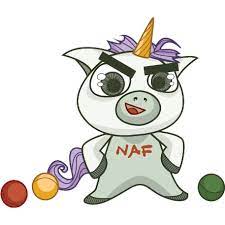Hi everyone. Over the past few weeks I’ve been getting messages regarding my two posts on Israel and Gaza. Most of them have been kind and encouraging. Some have been thoughtful in their disagreement. And some have not been so thoughtful, such as the colleague who called me a Nazi because I support a ceasefire and an end to the genocide and ethnic cleansing that Israel is committing against Palestinians in Gaza.
I have lost many followers and some work because of my stance, but it doesn’t matter. What I and others calling for a ceasefire have been experiencing cannot compare to the profound pain and suffering Palestinians are experiencing right now and have been for over 75 years of Israeli occupation.
I also want to acknowledge that many of us are affected by trauma, including intergenerational traumas from horrific injustices in history. What our parents and grandparents endured lingers in our souls. Everyone is understandably on edge, and the horrific atrocities committed by Hamas against Israeli civilians on October 7th and the horrific atrocities being committed by Israel against Palestinians in retaliation deeply affect us.
Still, I am saddened and frustrated that after so many years of Equity, Diversity, Inclusion, Belonging, and Justice (DEI, or JEDI, or whatever) trainings, after so many workshops and summits and white papers and online discussions, many of us have forgotten the key lessons we learned and desperately need to apply to what is happening now. I’d like to go through them, mainly as a reminder to myself, and also in hopes that they may be helpful to you as you navigate the current injustice:
1.We must have an analysis of the power dynamics: We learned that racism requires a combination of prejudice plus systemic power. This is why most of us can see why concepts like “reverse racism, racism against white people” are ridiculous, because Black, Indigenous, Latine, and AANHPI people do not have systemic power that white people do in the US. In the case of Israel and Palestine, these are not two equal forces moving against each other. Israel is vastly more powerful (the fourth most powerful military on earth) and backed and financed by some of the most powerful forces (especially the US) while Palestine has weakened infrastructure, no military, and significantly less support. To treat this as a battle between equals misses the vital analysis that is necessary for us to fully understand the context.
2.We must use the active voice when calling out injustice: This is a lesson we all should have learned because of the works of leaders like k. kennedy Whiters of (un)Redact The Facts. Instead of saying “a Black man dies in traffic stop incident with police,” we must say, “police officer kills a Black man during routine traffic stop.” This active voice helps with accountability. What is happening now is not “over 11,000 people, including over 4,000 children, have died in in Gaza.” Let’s be clear: “Israel, backed by the US and other western powers, has killed over 11,000 Palestinians, including over 4,000 children, in Gaza.”
3.We must not “both-sides” inequity and injustice: People saying there are multiple sides, and that when we speak up for Palestinians’ rights, we are only presenting one “side.” There are no “sides” to genocide. The horrific atrocities Hamas committed against Israeli civilians do not justify the genocide that Israel is committing against Palestinians now nor the occupation and oppression it has committed over decades.
4.We must use precise terms and concepts and not euphemisms: I know some of you do not agree with the usage of the word “genocide.” But that is precisely what is happening, according to human rights experts and according to many Jewish leaders, including many survivors of the Holocaust. To refuse to name it is to deny that it is happening. It is not simply a “conflict.” It is genocide, it is ethnic cleansing, and if we aim to stop it, we must not be in denial about that. As a reminder, for a long time, and even occasionally now, many people in our sector could not say words like “white supremacy” or “anti-Blackness” or even “race.” But we cannot address systemic injustice when we refuse to name things as they are.
…









